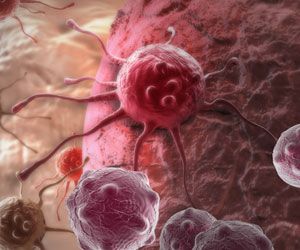New research suggests that the Myc oncogene can disrupt the 24-hour internal rhythm in cancer cells.

Timing of the body's molecular clock in normal cells synchronizes the cellular need for energy with food intake during our sleep-wake cycle. Timing matters to the study of cancer in two ways. First, toxicity to some chemotherapy drugs is related to time of day. For example, a cancer drug called 5-flourouracil is less toxic if given to a patient at night because the liver enzymes that detoxify it are more abundant at night. Second, several circadian rhythm genes have been implicated as tumor suppressors, although those exact connections are as yet unclear. Other researchers have also observed that many, but not all, cancer cell cultures lack proper circadian rhythm. "Our hypothesis is that disrupting circadian rhythm benefits cancer cells by unleashing their metabolism from the constraints of the molecular clock," says Altman. "In this regard, cancers don't sleep; they don't rest."The Penn study deals with the relationship of clock proteins in peripheral tissues associated with three types of cancer cells.
The researchers surmise that Myc may affect circadian rhythm by promiscuously binding to promoter regions in key genes for maintaining circadian rhythm. In fact, using a well known genome browser they confirmed that Myc binds to circadian genes. The Penn team also found that Myc upregulates another clock-regulated protein called NAMPT, potentially leading to dysregulated Sirt1 activity, another protein that is part of the complicated molecular clock. Inhibiting NAMPT downstream of Myc also led to changes in circadian gene expression, suggesting a role for the modulation of other proteins downstream of Myc in throwing a wrench in the clock's gears.
Using cells from cultures of neuroblastoma, osteosarcoma, and hepatocellular carcinoma, which all overexpress Myc, they found that the abundance of Myc specifically upregulated the circadian protein Rev-erbα. This protein in turn suppressed the oscillation of Bmal1 messenger RNA and decreased expression of the main clock protein Bmal1.What's more, the disrupted circadian oscillations in the Myc-expressing cancer cells could be partially rescued by inhibiting expression of Rev-erbα. "Our data suggest that Myc-driven cancers have altered circadian oscillation due to upregulation of Rev-erbα and NAMPT, and that these Myc cancers may be good candidates for chronotherapy," says Altman. "This work ties together the study of cell metabolism and cancer chronotherapy – If cells don't have to 'rest," they may replicate all the time, with no breaks at all. " "The understanding of these basic mechanisms from our work should lead to better cancer treatment strategies that reduce side effects and increase effectiveness" says Hsieh.
Source-Eurekalert










